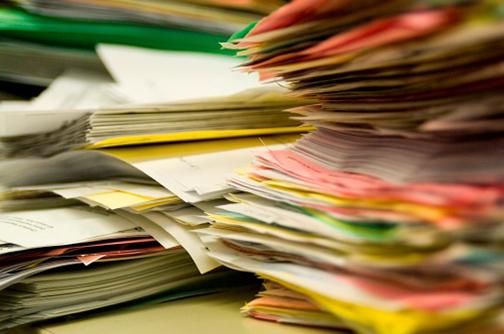The U.S. Navy issued a paperless decree during the 1990s. That is, all forms—of which, there is a legion—were to be prepared and stored electronically. It was a great idea, but it snarled since bureaucracy isn’t where innovation happens. It should work at San Diego State, but it doesn’t because professors aren’t taking advantage of Blackboard.
[quote]Only one of my classes this semester embraces this paperless concept, while the rest waste paper as if destroying the Amazon rainforest doesn’t doom humanity.[/quote] Bigfoot has a smaller footprint than the large carbon footprint fashioned from the reams of paper students needlessly print, not to mention all those landfill-unfriendly ink cartridges.
I’m eternally sweating an essay deadline, and I can count on one hand the number of times I’ve submitted an electronic-only essay. The rest required printing. Sometimes I toss graded essays into a recycling bin. But sometimes I don’t, Earth’s fate shouldn’t rest on my recycling ability. No essay should see the non-digital world.
Blackboard’s partnership with Turnitin makes electronic essay submission even easier. Better yet, Turnitin immediately alerts all parties when plagiarism is suspected. Some old school professors say they can tell when a paper has been plagiarized, but that claim is as dubious as my parents saying they’ve eyes in the back of their heads.
The worst paper-waster was a creative writing class I took in the Fall. With 24 students, four writing assignments requiring peer editing and weekly reading assignments all requiring printing, each student printed approximately 500 pages. That’s equivalent to 40 300-page novels. That’s not only absurd, it’s expensive.
Wondering how cash-strapped college students can afford printing ink without resorting to human trafficking, I performed an experiment with the last assignment. I wanted to see how much of a hassle it was to electronically critique each student’s submission. Although using Microsoft Word’s comment function was awkward at first, it became simpler with time. With this discovery, I concluded that printing wasn’t necessary.
Professors are capable of learning new tricks. One of my former professors required assignments to be double submitted—once electronically, so that Turnitin could work its magic, and a paper copy she used for grading. But midway through my second course with her, she started grading the electronic copy. Not surprisingly, she now requires the electronic copy only.
You might be asking, “What about students without a computer?” Since professors require typed essays—and the last time I saw a typewriter was when “Friends” aired first-run episodes—I assume all students have some sort of computer access. [quote]Plus, requiring electronic-only submissions eliminates the burden for printer-less students to have to pay for printing. That might be bad for the Love Library, but that which is good for the student is good for SDSU.[/quote]
Even some science and math courses are Blackboard friendly. Online courses usually have a plug-in allowing students to perform calculations and display their work, always a mathematician’s grading staple. I’ve also taken courses where multiple-choice tests and short-answer essays were completed through Blackboard. Yes, it’s even possible in large lecture halls.
While we’re on the topic of reducing paper, let’s also eliminate paper textbooks. After all, the first Kindle debuted six years ago. SDSU officials can demonstrate they care about the strain cumbersome textbooks place on our backs by pressuring publishers to accelerate electronic format transition.
SDSU likes to tout its “green” movement, and although it deserves a slow applause for the care placed in new construction projects, it shouldn’t get so involved in higher-level efforts that it overlooks the waste occurring inside its classrooms. Through better utilization of Blackboard, the Earth wins.
Image courtesy of Thinkstock.










